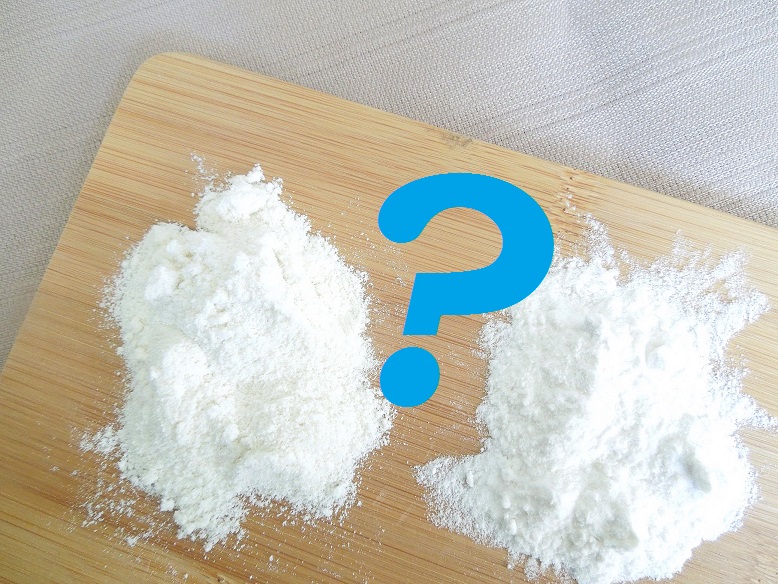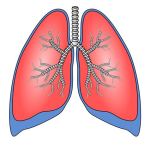Benefits of zinc and its role
as a glutathione cofactor

Many of the health benefits of zinc have been identified only a few decades ago although this mineral’s importance for maintaining health was first recognized back in the 1930s.
Zinc is an essential trace mineral present in all our tissues. It is the second most abundant trace element in the body at approximately 1.5-3 grams in an average adult, with the highest concentrations in the muscles, bones, prostate gland and sperm in men, red and white blood cells, brain, liver, kidneys and retina of the eye.
The following benefits of zinc have been scientifically documented, all covering the most important bodily functions:
- Zinc is a functional component in over 200 (some sources mention 300) enzymatic reactions in our bodies.
- It is required for DNA synthesis, protein synthesis and collagen formation.
- Zinc is crucial in cell division and for normal structure and function of cell membranes.
- Zinc is one of the most important nutrients for the immune system and resistance to infections: zinc regulates and stimulates the activity of T lymphocytes, natural killer cells and phagocytes (immune cells that ingest harmful bacteria, dead cells and pathogens), as well as special CD4 proteins on the cell surface that help the immune system fight disease.
- Zinc lozenges may be useful in the treatment of a common cold if taken right at the onset of the illness. One 1996 placebo-controlled study with 100 participants showed the reduced duration of cold symptoms from 7.6 days to 4.4 days at a dose of 13.3 mg of zinc gluconate every 2 hours. Although the benefits of zinc for managing colds are still the topic of debate as there are also studies that didn't register any improvement. Some researchers argue that the lozenge formulation plays a role because citric and tartaric acids, for example, may reduce zinc bioavailability.
- One of the crucial benefits of zinc for our antioxidant defenses is that it is a structural component of the enzyme copper-zinc superoxide dismutase (CuZn-SOD). This enzyme neutralizes toxic superoxide that our immune system deploys against various pathogens both inside and outside the cells. Superoxide poses a danger to the neighboring healthy cells and must be neutralized before damage occurs.
- Zinc is necessary for the production of neurotransmitters in the brain.
- Zinc is needed for the synthesis, secretion and proper utilization of insulin.
- Zinc participates in the metabolism of the thymus gland, pituitary gland, thyroid and adrenal glands.
- It is vital for healthy prostate and sex hormone function, for the growth of the reproductive organs, as well as for normal fetal growth and development, and the completion of full-term pregnancy. It is also needed for breast milk production.
- Adequate levels of zinc are needed to maintain the proper concentration of vitamin E in the bloodstream – an important function because vitamin E is a crucial antioxidant and a glutathione cofactor.
- Zinc is required for healthy liver function and the release of vitamin A from the liver.
- Zinc plays a role in the maintenance of our sense of smell and taste.
- As the most abundant trace mineral in the eye, zinc is vital for healthy vision.
- Zinc plays a role in the health of the digestive system, too, as it is involved in the production of hydrochloric acid and the maintenance of acid-alkali balance.
Such broad involvement of zinc in so many critical functions makes this trace mineral indispensable for maintaining health.
Since zinc is not stored well in the body, daily consumption with food is necessary. Current recommended daily intake is 11 mg for men and 8 mg for women; zinc requirement increases to 12 mg/day in pregnant and breast-feeding women. Some sources mention 15 mg/day for men and 12 mg/day for women.
Best dietary sources of zinc are oysters, crab meat, red meats, organ meats, beans, nuts, seeds, grains and eggs. Animal sources of zinc are considered superior and more bioavailable than zinc from plant sources because plants are high in phytates and oxalates which bind zinc and significantly reduce its absorption rates. For more information on dietary zinc and the list of the foods with the highest zinc content visit our page Zinc Rich Foods.
Severe zinc deficiencies are uncommon in the industrialized countries; however, mild, prolonged deficiencies can occur, they often go undetected and may become a reason for concern, especially in the elderly, people with malabsorption syndromes, diseases of the GI tract, kidney and liver diseases, in vegans and vegetarians and in those who frequent saunas (zinc is lost with sweat).
Zinc deficiency has been linked to the abnormalities of the central nervous system and mental development, mental apathy, decreased growth rates in children, defects of the reproductive organs, delayed sexual maturation, impotence, fatigue, loss of smell and taste, anemia, susceptibility to infections, colds and flu, prolonged recovery times, delayed wound healing, white spots on the nails, brittle nails, hair loss, acne, dry skin, impairment in the conduction of nerves and nerve damage as seen in peripheral neuropathies.
Most common bioavailable forms of supplemental zinc are zinc citrate, zinc acetate, zinc picolinate, zinc gluconate, zinc orotate. Zinc oxide is inorganic and exhibits very low bioavailability.
BENEFITS OF ZINC AS A GLUTATHIONE COFACTOR
In addition to all the benefits of zinc mentioned above zinc is also a glutathione cofactor. Zinc deficiency is detrimental to the metabolism of glutathione and negatively affects glutathione concentrations in many types of cells, especially in red blood cells.
As part of the copper-zinc superoxide dismutase (SOD), zinc is essential as our first line of defense against oxidation caused by our own metabolism and the work of our immune system. Properly and promptly functioning SOD eliminates the damage to the cells which would have impaired glutathione production in these cells resulting in their death.
Zinc influences the expression of the enzyme glutamate-cysteine ligase (GCL), the first enzyme that initiates the formation of a glutathione molecule by joining glutamate and cysteine. Thus, zinc plays a significant role in the metabolism of glutathione.
As mentioned above, sufficient zinc is required to maintain the proper concentration of vitamin E in the blood. Vitamin E is a vital glutathione cofactor that assists glutathione in its antioxidant action. Vitamin E is also a part of the important antioxidant recycling system that involves glutathione, vitamin C and alpha lipoic acid. Glutathione concentrations depend greatly on the efficiency of this cycle. Thus, zinc participates in this process, too.
A zinc-dependent enzyme is needed for the metabolism of folate (folic acid). Folate is a glutathione cofactor that directs cysteine towards glutathione production rather than homocysteine production. Folate is also necessary for amino acid metabolism and protein synthesis, both being important aspects in glutathione metabolism.
Chronic zinc deficiency promotes the production of pro-inflammatory cytokines resulting in chronic inflammation that depletes glutathione levels. A large number of inflammatory diseases are marked by low glutathione levels.
Although various resources on glutathione usually do not dedicate much attention to zinc as a glutathione cofactor compared to vitamin C, E or B-vitamins, for example, the above cofactor benefits of zinc are clear.
At the same time, glutathione promoting benefits of zinc are neutralized by high levels of this mineral which are toxic, suppress the immune system and lead to the depletion of glutathione. It is quite possibly that this ability of high zinc levels to deplete glutathione is the reason why some studies with zinc lozenges showed no improvement in the supplemental groups.
Zinc toxicity can occur at doses as low as 40 mg per day. Symptoms include nausea, abdominal pain, vomiting, dizziness, and lethargy.
High doses of zinc impair the absorption of copper which may lead to heart disease over time. Supplemental copper may be needed to maintain copper-zinc ratio (1:10) balanced if supplementing regularly with zinc in doses of 25 mg a day and more.
As always, discuss all supplements with your treating physician before making any changes to your nutritional regimen.
Sources:
1. "The New Encyclopedia of Vitamins, Minerals, Supplements & Herbs" by Nicola Reavley.
2. "Prescription For Nutritional Healing" by Phyllis A. Balch, CNC.
3. "Immunity - power up your defenses" by Lise Alschuler, ND.
4. "Glutathione. Your body's most powerful protector" by Jimmy Gutman, MD.
5. Linus Pauling Institute. Zinc.
6. Prasad AS, Bao B et al. Antioxidant effect of zinc in humans. Free Radic Biol Med. 2004 Oct 15;37(8):1182-90.
7. Bonaventura P, Benedetti G et al. Zinc and its role in immunity and inflammation. Autoimmun Rev. 2014 Nov 24. pii: S1568-9972(14)00280-8.
8. Bediz CS, Baltaci AK et al. Zinc supplementation ameliorates electromagnetic field-induced lipid peroxidation in the rat brain. Tohoku J Exp Med. 2006 Feb;208(2):133-40.
9. Farinati F, Cardin R et al. Zinc treatment prevents lipid peroxidation and increases glutathione availability in Wilson's disease. J Lab Clin Med. 2003 Jun;141(6):372-7.
10. Omata Y, Salvador GA et al. Decreased zinc availability affects glutathione metabolism in neuronal cells and in the developing brain. Toxicol Sci. 2013 May;133(1):90-100.
11. Malhotra A, Dhawan DK. Zinc improves antioxidative enzymes in red blood cells and hematology in lithium-treated rats. Nutr Res. 2008 Jan;28(1):43-50.
12. Mossad SB, Macknin ML et al. Zinc gluconate lozenges for treating the common cold. Ann Intern Med, 1996 Jul, 125:2, 81-8.
13. Cruz KJ, de Oliveira AR et al. Antioxidant role of zinc in diabetes mellitus. World J Diabetes. 2015 Mar 15;6(2):333-7.
Return to Top of Benefits of Zinc
Return to Glutathione Cofactors
Return to Home




